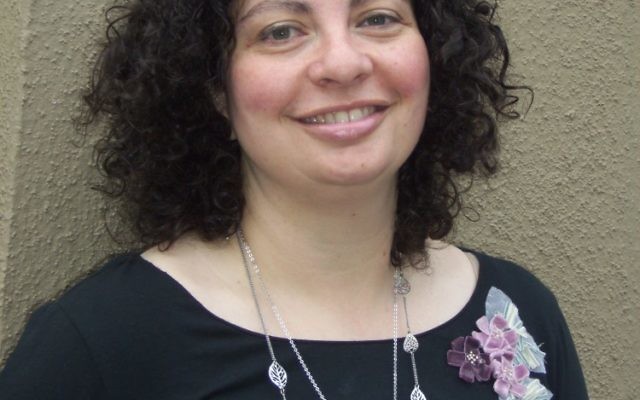Words of Wisdom, I Made Them out of Clay
By Rabbi Ruth Abusch-Magder | rabbiruth@gmail.com
When coaching parents at the start of the school year, I encourage them to be supportive and patient, keeping the big picture in mind. But sitting in the pottery studio last week, staring at the bowl spinning on the wheel across from mine, I had none of those qualities.
Instead, I was consumed by judgment. Hers were good. Mine, laughable.
Judaism stresses the value of learning — secular and sacred. Judaism sees parents as responsible for teaching their children a trade. Torah study is meant to be a lifelong endeavor not just because doing so keeps us on the right path, but also because study is an end unto itself — both the content and process uplifting.
In the shtetl, the words of the aleph-bet were covered in honey on the first day of school to set the stage for the sweetness of learning. The modern equivalent are the first-day school photos, which in recent weeks have been shared widely. The clean faces and bright smiles speak to the excitement of the learning process.
But all the sweet honey and first-day smiles cannot conceal the fact that learning, however sacred or necessary, also involves frustration and failure. Judgment and criticism are rarely far behind.
After nearly a 20-year hiatus, I recently returned to pottery. I took a short, eight-week intro class. Over the summer there were no classes, only open studio without instruction.
I arrived for the first summer session optimistic and joyful. At the end of the session, I even had a few pieces to show for my effort — all charmingly lopsided.
But a few sessions later, the wonder and magic were gone. In the course of several hours I had attempted to throw 10 times with very little to show for my effort. The results were pitiful even by my own standards and certainly in comparison with the prolific and polished output of the woman across from me.
My 5-year-old inner self wanted to throw up my hands and stomp out of there in frustration. I was making no progress; I was a failure. The whole venture a waste of time.
In my work as a mentor to parents who experience frustration with the progress their children make, I often turn to the experience of Moses and the people of Israel.
The journey from Egypt to the Promised Land began with celebration and optimism, but in the end it took 40 years to complete. It was filled with sacred moments and divine revelation but also with failures, conflict and lots of setbacks.
Why should we expect less when we guide our children or, for that matter, when we take the journeys of our own lives?
Educational psychologist Carol Dweck sees a growth mindset as the foundation for successful learning. Not to be confused with just trying your best, Dweck explains that to be successful learners, “students need to try new strategies and seek input from others when they’re stuck. They need this repertoire of approaches — not just sheer effort — to learn and improve. The growth-mindset approach helps children feel good in the short and long terms, by helping them thrive on challenges and setbacks on their way to learning.”
Recognizing that my mindset needed some shifting, I engaged the other potter in conversation, praising her work and giving voice to my frustration with my own. Barely looking up, she asked me a few questions and recommended that I try a little less water on my next attempt. She also mentioned that she had been taking lessons for over a decade.
Like the students of old in the heder, or the smiling children in the first-day photos, I have some more wandering to do in the desert.
On the bright side, along with the failures and frustrations there are likely to be revelations and inspiration on the way if I get the right supports and mindset in place. And, thankfully, it is unlikely to take 40 years.





comments